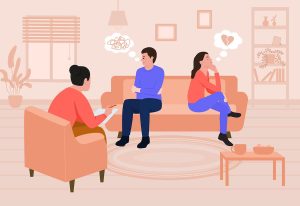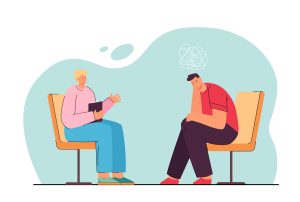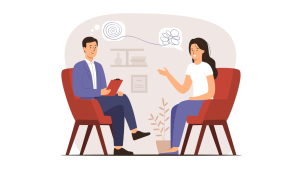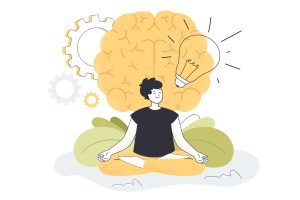
Navigating Panic Attacks: A Guide To Successfully Solving The Panic Puzzle
A panic attack can be a scary and confusing experience to go through. During a panic attack, you can feel like your heart is beating

A panic attack can be a scary and confusing experience to go through. During a panic attack, you can feel like your heart is beating

When you are suffering from depression, you may feel like your entire life revolves around managing your negative thoughts and feelings caused by depression. You

The decision to take up counseling can be confusing. Choosing the right therapist can be difficult, as there are different forms of therapy available around

Online counseling is a service that addresses mental health issues and is provided via video call, chat, phone, or email. Today, psychological support and counseling

Have you been considering couples counseling, but you are confused about it’s process, and all that it entails? There are a various types of therapy

Mental health is essential for our overall well-being, and when we struggle emotionally, it can affect every aspect of our lives. Psychological counseling is an

What is mindfulness meditation? Mindfulness is a beautiful practice that helps us become rooted in life. It involves getting our minds back to the present

Benefits of Online Therapy: Is Online Therapy Right for you? Traditional Therapy is the process of meeting with a mental health expert -a counselor or

Managing emotions mindfully Have you ever been told you were acting unreasonably or you blew things out of proportion? We are taught to express our

What are Body Image Difficulties? How many times have you found yourself scrolling through Instagram and feeling like you aren’t good enough? You may feel

We specialize in combining psychotherapy with deep wellness practices like mindfulness and meditation and creating a customized mental health plan for individuals and organisations.
We specialize in combining psychotherapy with deep wellness practices like mindfulness and meditation and creating a customized mental health plan for individuals and organisations.

A young woman from another country moved with her family to live for one year in a town near the monastery. When, in the course of the year she discovered the monastery, she would periodically visit to have discussions with the Abbess. The Abbess introduced her to meditation, which became very meaningful for the young woman.
When the family’s year-long stay was drawing to an end, the young woman asked the Abbess, “In my country there is no Buddhism and no one has even heard about meditation. How can I continue to learn and deepen the practice you have started me on?”
The Abbess said, “When you return home ask far and wide for who, among the wise people, is recognized as having the greatest ability to listen. Ask that person to instruct you in the art of listening. What you learn about listening from such a person will teach you how to further your meditation practice.
― Gil Fronsdal, A Monastery Within: Tales from the Buddhist Path